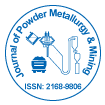Notre groupe organise plus de 3 000 séries de conférences Événements chaque année aux États-Unis, en Europe et en Europe. Asie avec le soutien de 1 000 autres Sociétés scientifiques et publie plus de 700 Open Access Revues qui contiennent plus de 50 000 personnalités éminentes, des scientifiques réputés en tant que membres du comité de rédaction.
Les revues en libre accès gagnent plus de lecteurs et de citations
700 revues et 15 000 000 de lecteurs Chaque revue attire plus de 25 000 lecteurs
Indexé dans
- Indice source CAS (CASSI)
- Index Copernic
- Google Scholar
- Ouvrir la porte J
- JournalSeek de génamique
- Recherche de référence
- Université Hamdard
- EBSCO AZ
- OCLC-WorldCat
- Publons
- Euro Pub
Liens utiles
Revues en libre accès
Partager cette page
Abstrait
A Structure Property Processing Comparison of Cold rolled PM Copper and Cold Gas Dynamically Sprayed Copper
Paul D. Eason
Cold gas dynamic spray processing (cold spray) is a solid-state material deposition process used for coating and repair processes in many alloy systems. Cold spray has long been proposed as a potential method for freeform fabrication. The cold spray process imparts great deformation to the impacting particles, affecting the final properties of the deposit through work hardening, grain refinement and inter-particle bonding. For the purpose of demonstrating the feasibility of cold spray as a viable freeform fabrication method, the microstructure and hardness of bulk cold sprayed samples were characterized in as received and annealed condition, then compared to cold rolled material, which was previously vacuum hot pressed from the same powder stock used in spraying. Microstructure was analyzed via scanning electron microscopy and electron channeling contrast imaging to assess grain refinement and thermal annealing response in the cold sprayed and cold rolled materials. Vickers micro hardness was measured to assess the effects of cold spray impact on the properties of bulk, as-sprayed copper relative to cold rolled copper. In postannealed materials, greater hardness is achieved with the cold spray process through the suspected mechanism of grain refinement unachievable in the rolling process.
Revues par sujet
- Agriculture et Aquaculture
- Biochimie
- Chimie
- Food & Nutrition
- Génétique et biologie moléculaire
- Géologie et sciences de la Terre
- Immunologie et microbiologie
- Ingénierie
- La science des matériaux
- Le physique
- Science générale
- Sciences cliniques
- Sciences environnementales
- Sciences médicales
- Sciences pharmaceutiques
- Sciences sociales et politiques
- Sciences vétérinaires
- Soins infirmiers et soins de santé
Revues cliniques et médicales
- Allaitement
- Anesthésiologie
- Biologie moléculaire
- Cardiologie
- Chirurgie
- Dentisterie
- Dermatologie
- Diabète et endocrinologie
- Gastro-entérologie
- Immunologie
- La génétique
- Maladies infectieuses
- Médecine
- Microbiologie
- Neurologie
- Oncologie
- Ophtalmologie
- Pédiatrie
- Recherche clinique
- Soins de santé
- Toxicologie

 English
English  Spanish
Spanish  Chinese
Chinese  Russian
Russian  German
German  Japanese
Japanese  Portuguese
Portuguese  Hindi
Hindi